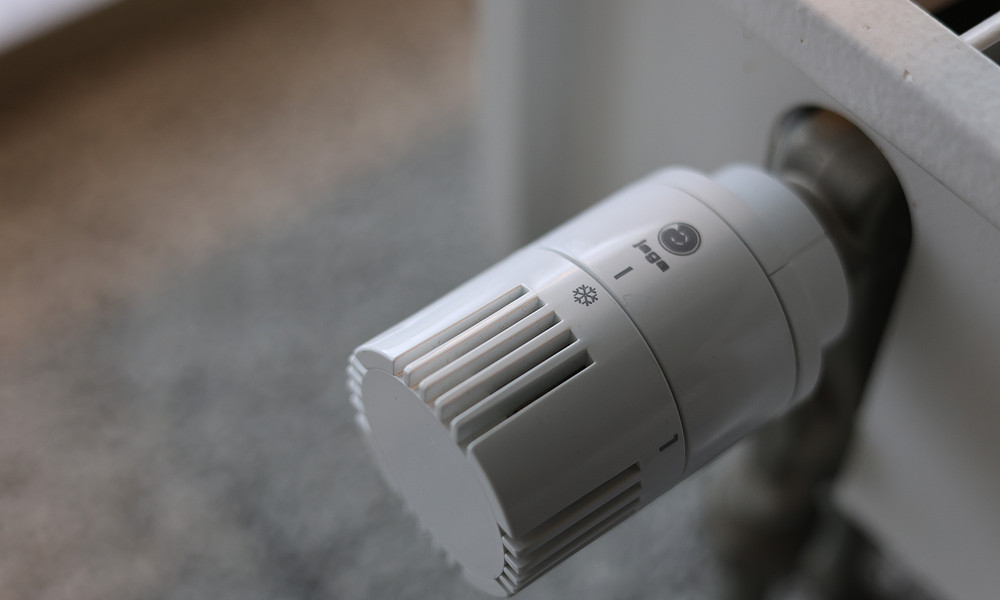Barn Talk: What are we going to do about energy inequity?
- News

On Wednesday April 3rd, the Central Bureau of Statistics published the inflation figures for March. They were 3.1 percent higher than a year ago. The main culprit: energy prices. That same afternoon, a Barn Talk will discuss energy poverty slash energy inequity. What can we do about it?
Text: Loes Vader
Photo: Annemijn Touw
‘Why is it better to talk about energy inequity than about energy poverty?’ host Marcel Koenis asks at the start of the Barn Talk. Experience expert Riane Kuzee explains: ‘There is enough energy for everyone, it's just unfairly distributed. As long as shareholders continue to receive profits, this is an injustice in my view. There are people literally and figuratively out in the cold because they are afraid of debt.’
As a mother on welfare, Kuzee has had to deal with poverty and energy inequity for years. ‘I didn't dare to raise the heating above 18 degrees Celsius, because I was too afraid of the final bill. I had two major expenses, the rent and the utility bill. I couldn't change anything about the rent, but I did have influence on my energy bill, with all the consequences that entails. I turned the heating down so low it made us sick. My daughter developed asthma due to the damp conditions and mould in our house. She has been in treatment for nine years and she has been on medication for nine years. That came at a cost.’
Hanna Kreuger graduated from the Master's in Energy for Society in 2023. For her thesis, she analysed which households were affected by energy poverty. Kreuger wrote her thesis on energy poverty and gender. Hanna explains how she came to that combination. ‘The gender connection became evident when I discovered that single-parent families in particular were in trouble and that 98 percent of them are run by women.’ When Hanna started her thesis in 2020, 512,000 families were living with energy poverty. ‘This was before the war in Ukraine and corona. Due to the war in Ukraine, energy prices went up and because of corona, our energy consumption increased as well. The government responded to this with, among other things, the energy allowance and the energy cap, 60 percent of which ended up with people who did not need it. There is still a growth in the number of households that get into trouble because of energy bills.’
There is a big job ahead for housing associations and private landlords, because from 2030 landlords will no longer be allowed to rent out homes with an E, F, and G energy label. They often do this by making very poorly insulated homes a little less bad. Riane Kuzee gives the example of houses that get solar panels while the insulation is bad. ‘There is a lot to be gained there. Also, if you live in poverty, you want to profit from such measures right away. You can't expect residents to get excited about sustainable measures if they are always accompanied by rent increases.’
Can the Fixbrigade help to alleviate energy inequity? The Fixbrigade is an accessible national organisation that does energy-saving jobs in people's homes. Els Struiving is project leader of the Fixbrigade Paddepoel. Struiving acknowledges that it is not that easy to get into people's homes.
‘We work closely together with the social domain to reach people who do not respond to letters from the municipality and who do not open the door when someone from the housing association rings their doorbell. People who are afraid of institutions and distrust them. You need key people to get in, someone they do trust. That's what we call borrowed trust.’ Struiving emphasises that the housing corporations are doing their best, but that they are not looking at things from a resident's perspective.
The maze of measures and subsidies is also mentioned as a stumbling block. There is money, but it is not always accessible. Riane Kuzee explains: ‘Each source of funding is more difficult to access than the next. It is well known that many people did not complete their Emergency Fund application.’ The bureaucratic maze is mentioned, as well as the fear of receiving support that later turns out to be unjustified, so that you then have to pay it all back.
Hanze researcher Behavioural Change in the Energy Transition Wiebo Lamain knows that people who need it the most have to wait the longest because their houses are the worst, and the housing corporations and municipalities often pick the low-hanging fruit first. This is a technical decision rather than a humane one. Lamain also addresses the lack of capacity. ‘Municipal officials don't have the time to visit people.’
It is a complex situation and an hour and a half into the discussion there are no ready-made solutions. ‘There is no one party that can solve this,’ says Lamain. ‘Only an integrated, project-based approach and cooperation between many different parties could reduce energy inequity. You would have to mobilise all capacity. Technically, economically and socially. So that the energy transition does not make the difference between the haves and have-nots even greater.’ ‘Make sure that the chosen solution leaves some money in people’s pockets. I have no long-term vision, because I have to decide today what food to put on the table this week,’ concludes Riane Kuzee.
How satisfied are you with the information on this page?